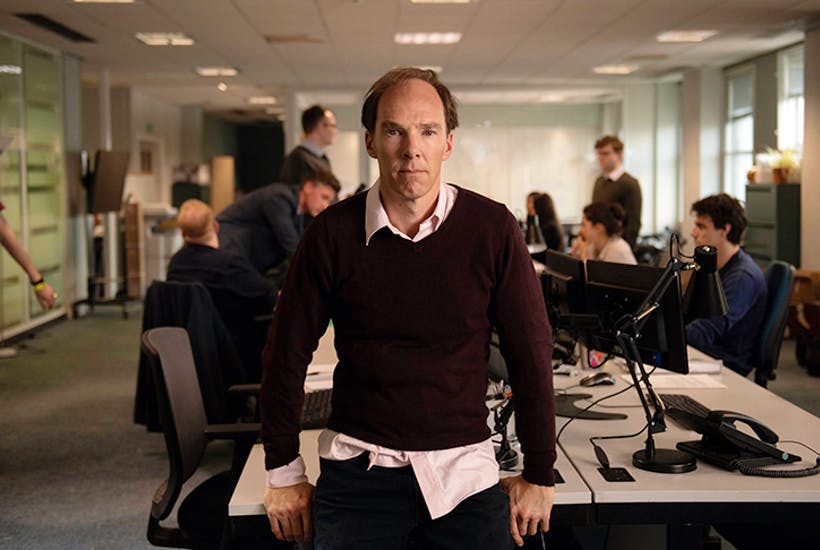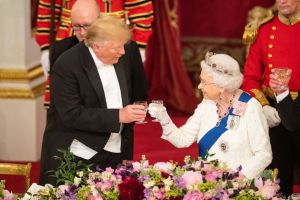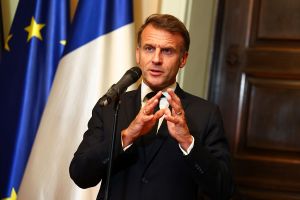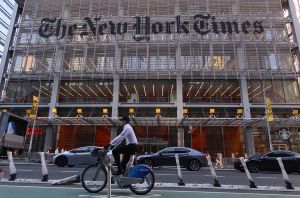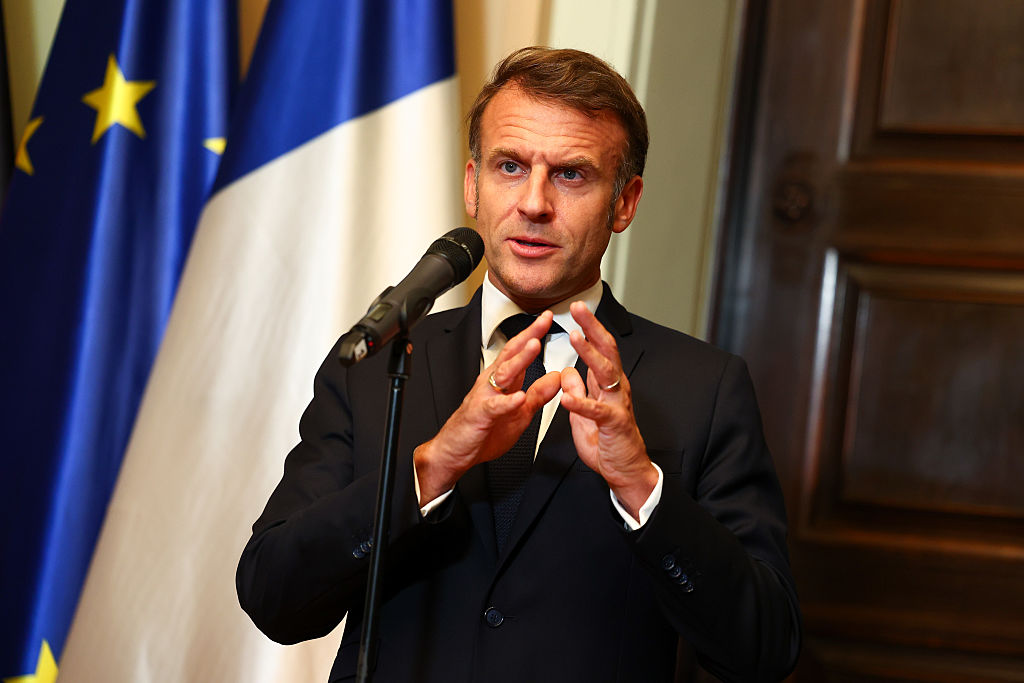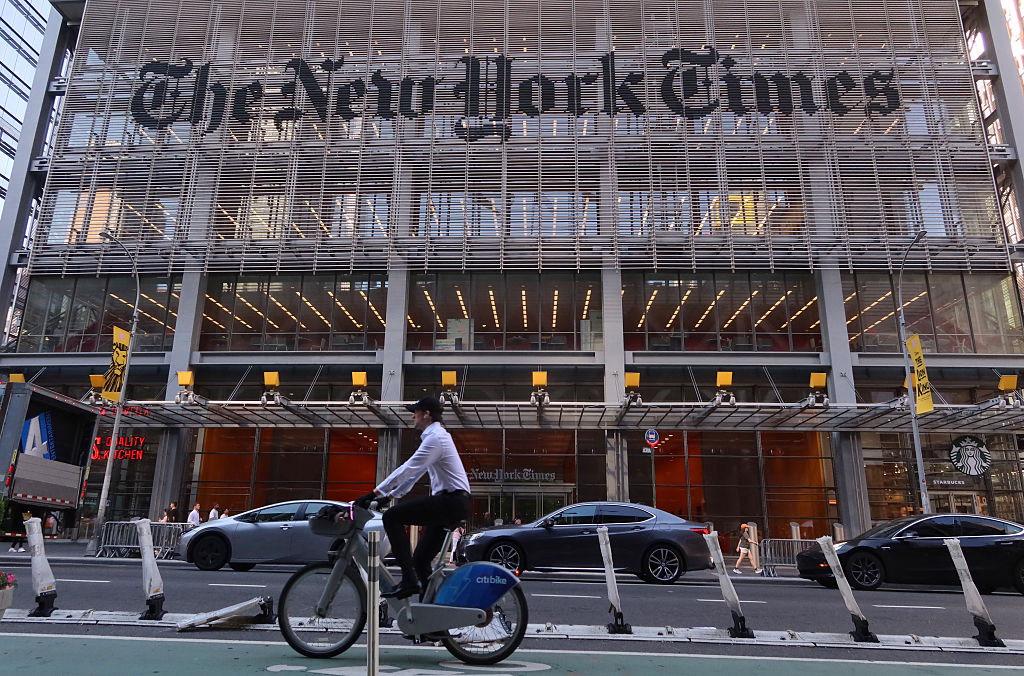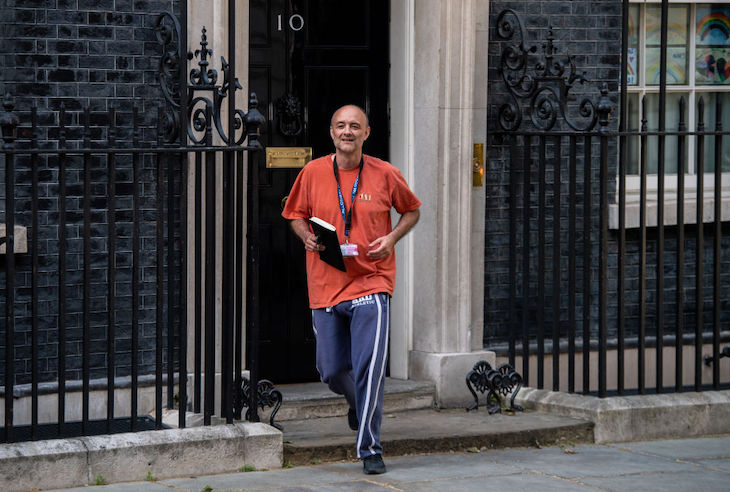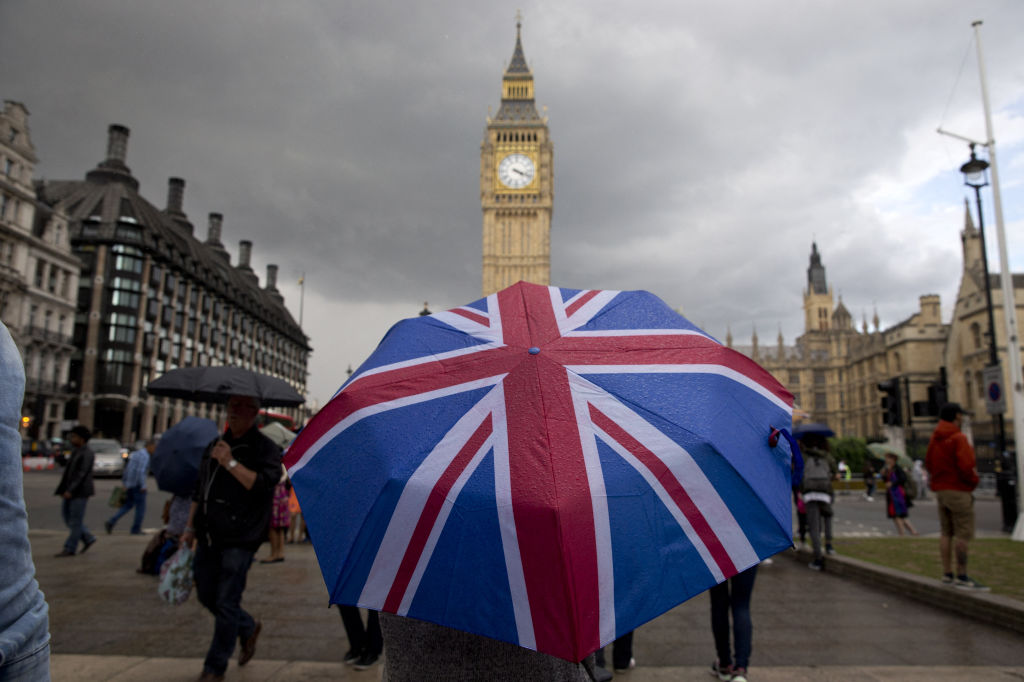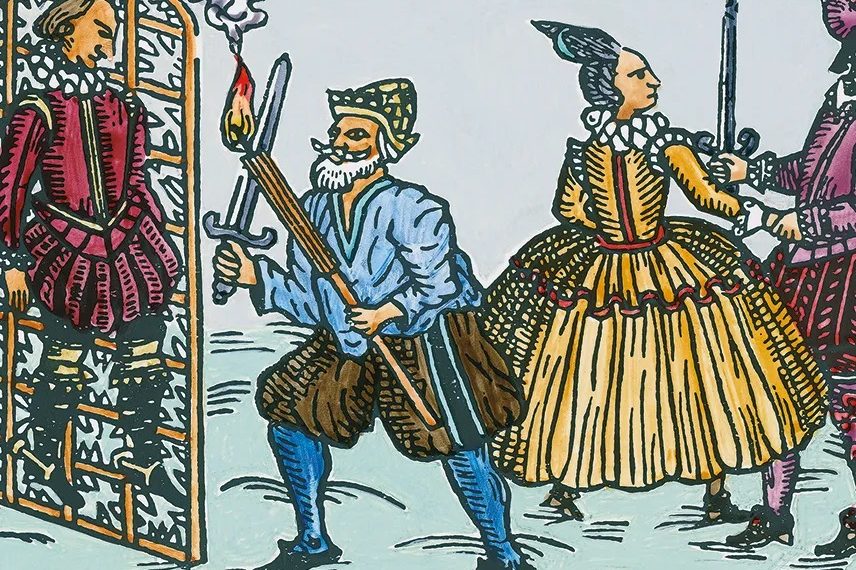‘I try to interpret the most generous version of somebody’s actions,’ says the dramatist James Graham. This rare ability to create open and sympathetic characters has turned the 36-year-old into our foremost political playwright. His breakthrough work, This House, chronicled the terminal decline of James Callaghan’s premiership between 1976 and 1979. Rather than focusing on Callaghan and his destroyer, Margaret Thatcher, the play looked at the backbenchers and party whips who labored behind the scenes to keep Callaghan’s government afloat.
Graham’s plays are comedic but he’s principally an observer rather than a satirist. Yet he recognizes the value of caricature. ‘It’s a very necessary weapon with which to hold people to account,’ he says. ‘It’s something the British are uniquely placed to do. Our sense of humor is very piss-takey. I was surprised, when I went to America to work, that the first thing people observed about me was that my way of expressing affection was by insulting people. I didn’t realize that was a uniquely English thing.’
In 2017 Graham was invited by Channel 4’s new director of programs, Ian Katz, to create a drama about the referendum. It was the first script Katz commissioned. And Graham felt qualified to encompass the spectrum of opinion on Brexit. ‘I live in Lambeth in London, in the most pro-Remain constituency in the country, but Mansfield, where my family live, is in one of the top ten pro-Leave areas. My family and friends voted Leave. I love people who voted differently from me. And I listen to them.’
Something monstrous, he says, was released into British politics by the referendum. He wanted his script ‘to make sense of this feeling that there’s a dragon in the basement that’s been growing and growing and growing for decades. And it burst out of its cage in 2016. Something’s been feeding it, and we’ve been ignoring it.’
Early drafts featured the big beasts, Cameron, Osborne and Boris Johnson. But Graham felt it would be ‘more surprising and more interesting’ to repeat his technique with This House and to peek behind the scenes at the people running the campaigns. ‘Boris and Michael Gove, bless them, didn’t come up with the red bus or the £350 million claim or the slogan “Take Back Control” even though they were the faces seen by the public.’
It was only while researching the script that he realized that the Brexit campaign had been split between Leave.EU, fronted by Nigel Farage, and Vote Leave, run by an affiliation of Eurosceptic Tories. ‘Initially as a dramatist I was a bit annoyed because you want Leave here, and you want Remain there. The symmetry is pleasing, and to lose that symmetry I found frustrating. And it just added a triangle of confusion and complication.’ But he saw this as an opportunity to enlighten viewers ‘about the different tranches of Leave’. A Remainer himself, he characterizes the Remain view of the Leave operation as ‘quite unsophisticated, quite thuggish, brutish, crude politics’. He was surprised to find that ‘people at the centre of the Leave machine, people like Dominic Cummings and Dan Hannan, come from an intellectual and a philosophical background in their dislike of the EU, and it wasn’t the same as the more extreme xenophobic, racist elements of that campaign’.
The resulting film, Brexit: The Uncivil War, is self-evidently told from a Remain viewpoint, but it manages to appear balanced because it draws a sharp distinction between ‘good’ and ‘bad’ Leave. The bad lot, personified by Farage and Arron Banks, are coarse, boozy, under-educated hooligans. The good guys, including Hannan and Douglas Carswell, are literate and cerebral, with polished manners and extensive vocabularies.
Graham admits that the director of Vote Leave, Dominic Cummings, was unknown to him before he started work on the script. Benedict Cumberbatch plays Cummings as an idiosyncratic visionary disenchanted by the stuffiness and incompetence of career politicians. It’s a sympathetic portrait of an intellectual patriot, a man of action with a broad streak of anarchy in his make-up. According to the film, Cummings sometimes signs in as ‘Osama bin Laden’ when visiting government buildings. He agreed to meet both Graham and Cumberbatch during their research. ‘He was generous and gracious. He opened his door,’ says Graham. ‘He hasn’t done that to many journalists. I wasn’t holding him specifically to account. I just wanted to listen.’
Cummings revealed that his unorthodox canvassing methods included a ‘Wetherspoons tour’ of the country. ‘He went to market towns to gauge the nation’s mood. It was unscientific. He just went in and had a pint with people in places that most political scientists don’t go. No one had asked these people what they thought.’
Cummings coined the slogan ‘Take Back Control’ and insisted that Vote Leave should focus on the two issues revealed by his pub focus groups: national sovereignty and the cost of the EU. He also introduced new digital marketing strategies that reached thousands of neglected voters and, according the film, swung the result his way. Graham believes there’s unfinished business here. ‘He [Cummings] thinks there is a problem. Technology is advancing so fast and unchecked that we should be having a conversation about it, about how it’s affecting our politics. He would relish that but he doesn’t necessarily believe the MPs have the expertise to do it.’
Graham takes a bleak view of politics. ‘It’s not sustainable, this mood, this paralysis, nothing is being achieved, nobody is agreeing, no new vision is being presented, no answers are being given.’ He says the referendum was held ‘disingenuously, because it was intended to tackle an internal Conservative party problem’. And the response left him dismayed. ‘All of us, Remain and Leave, defaulted to a very simplistic, a very tribal, a very toxic, very shouted form of politics when we could have listened and learned and interrogated this big, important question.’
What about a second vote? ‘In my community, a former mining town, [the result] was a reaction to austerity, the death of industry, unemployment. But have any of those concerns been tackled? Have those questions been answered by the people calling for a second referendum? Do we have the confidence that our discourse has shifted into a better form of conversation? I’m not sure. Because that,’ he says, jabbing a finger as if to conjure up the referendum genie, ‘that was terrifying.’
Brexit: The Uncivil War airs Saturday January 19 at 9 p.m., ET on HBO.
This article was originally published in The Spectator magazine.



